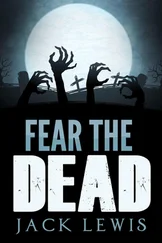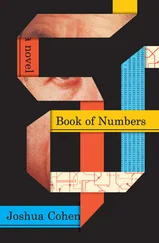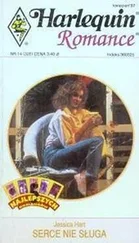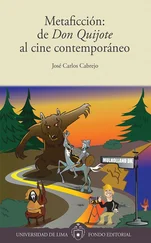The first story I brought Greener was my own original creation I barely remember save that it involved a young man who went away to war — which war? did I specify which or even have a certain war in mind? who came home with medals bandaging his wounds to find some things different, not drastically different, just slightly different, like his wife has a name that sounds like her old name or what he thought her old name was, or his daughter’s just as beautiful as he’d remembered but instead of having green eyes and blond hair she has blue eyes and brown hair and this destabilizes him, this youthful veteran, who begins behaving differently himself, indulging in violent outbursts he and everyone around him regard as wholly uncharacteristic (unable to give this unrecognizable family affection or hold down a job, he blots his days trying to throttle a motorbike engine) — the reader has to wonder how sane he is and, if he’s not sane, how that loss of sanity will end: with murdering his family? with murdering himself (the vet was based partially on my grandfather, WWII, partially on my father, Vietnam — I’ve never served and that and the double models for the protag were probably why I kept the exact date and location of the conflict vague, though current events conspired to turn a few references Arab)?
Greener didn’t like it, he didn’t like: fiction about war, fiction about animals and farming (the ancient pastoral was fine but the modern rural, verboten), fiction about or narrated by children (who were the same as animals to him). Essentially he didn’t like any writing by anyone living not him — here was a man at war with himself — though he did grudge me praise for the second story I gave him, which was the purposefully stilted, nearly dialogueless telling of an English professor, an expert at translating anacreontics, visiting this college far out in the stix to deliver a paper at a conference, fumbling through his presentation, stumbling into an unrecommended, ostensibly Vietnamese frytrap and getting so drunk at its incongruously tikified bar that he falls asleep on his stool and has to be woken and driven home by a waitressing doctoral student he offers “to put in a story”—or was it “to write into the next novel”?—if she sleeps with him, but she doesn’t and instead leaves him sprawled in the rear lot of his motel, where delirious through the night he apostrophizes squirting skunks, revived only when he’s hit in the head by the proprietor’s newspaper delivery, that local paper Greener refused to read (incidentally the only paper that pubbed a positive obituary).
Apparently no other student had taken Greener up on his suggestion to turn him into lit and, when he cornered me after that inaugural class that left approximately half the roster in tears — its surprise subject was how if you intended to succeed as a writer it was necessary to move to New York — I could tell he was struggling with a reaction: whether to treat me like a fool for taking him so seriously, or to treat me like a prick for taking him so seriously (Greener was very attuned to prickishness, and to pretension, except in himself, except in his description of “a city so personal, it’s as if it existed solely in dialogue”).
Your traducing of me, he said, it’s salvageable.
It is?
More so than most of the crap getting published.
He waited for a lesson in timing.
Then said, Which isn’t saying much.
Greener turned to erase from the blackboard the map he’d scribbled, not showing but telling the locations of the better bookmarts of Manhattan (ten of which, Dem tells me, have since closed), then had me accompany him to his office and then, following farther — out.
He’d been in town — what? two weeks at that point? Calendrically it was still late summer, Indian summer, but, like the Indians, faded, failed. No one had welcomed him, I don’t mean officially — the English department assisterati had requisitioned an ID card, dealt with the bursar in the matter of his tax forms, dealt with housing’s sophomoric supernumeraries in the matter of his housing — I mean, by his own slyly pathetic admission, no one had just casually shown him around, given him the gossipy lay: what Dem and I and Veri were getting at NYU — e.g. this is the library, where you can basically make camp with an open fire and live in the stacks (Greener’s class spent most of the fall doing that), the maths and sciences department, art, architecture, & design, journalism school, law school, center for experimental veterinary medicine. Greener was shocked by this greeting, honestly shocked, though what he interpreted as dereliction was merely the native reserve. Teaching being such a social activity — professors all day interacting, during office hours, in the hallways and restrooms with whomever they came across — that when their classes were over, they went home to stay home. They nested, our school mascot being an indigenously endangered nestbuilding bird. They projected documentaries and Scrabbled, chefed around elaborately, identified hobbies, attempted a baby. Certainly the school hadn’t hired Greener only to ridicule him (they were pleased to have a minority: not someone Semitic, but someone who’d once been reviewed), certainly his agent hadn’t arranged this appointment expressly to ruin him, as he maintained — though that suspicion, maybe, that paranoid loneliness revealed in his rage (what’s the administration doing on weekend nights more entertaining than entertaining me? how many cold Sundays can I spend jerkingoff to the Hudson?), was why we, the two of us, were walking, or maybe it was that he wanted to use me to get closer to Dem, who’d returned to our apartment from workshop to dry her eyes and dry our laundry. Other faculty had tried to get to her before: Horniak, Rutter, and BJ, her poetry thesis adviser, whose plywood cubicle was adjacent to Greener’s. Whenever he wasn’t meeting with a female student, he, BJ — that bald bold unit postured like an italicized questionmark — was seated in front of the computer the school had just given him, trying to figure out which slot the discs went in, grouching that his monitor was busted when it wasn’t plugged in.
I invoke this confusion to remind that when Greener was in residence, daily web use — campuswide internet access — was still a decade away. If our alma mater would’ve imported him just after the millennium, who knows if he would’ve felt so forsaken? who knows if he would’ve even dreamed of this gest?
As we roamed upper quad to lower, Greener became, by steps, progressively glummer until he was saying, You want to know the truth? New York’s flunked me. Why else am I here? I’ve been suspended, I’ve been expelled.
I said, You seem to be doing OK.
Not compared to how I’d be doing if publishing weren’t over, with the money gone and editors not editing, my generation’s screwed — we’re not the immigrant experience, we’re not the assimilation experience — we’re the first nothing generation, we’ve got nothing to write about and no one to read it, everyone too busy getting technologized, too harried with degrees.
Greener paused.
The conversation had taken an unpromising path. And we had too — leading down the hill to the labs.
Still we’re better off than you are, he said — before you or your girl would even belong to a generation, you’d have to intern in midtown, where generations matter.
You’re being unfair, I said, they matter here — your lineages and pedigrees — much more than on the coasts with all that transience.
I bummed a cigarette off him. Because he smoked, I smoked too.
I said, My family settled here before statehood — did I tell you I’m 1/16th Sioux?
He said, Intro to Identity. Multiculti Polyethnic 101. My parents survived Europe just so I’d write about it, they survived Europe just so I wouldn’t.
Читать дальше












